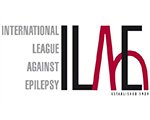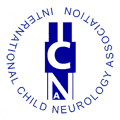Cognitive delay
Description
Development is the process by which a child learns new skills to interact with those around them and survive in their environment. It happens at a rapid rate during early childhood. Basic skills developed are combined to learn more complex skills such as walking, playing, speaking and thinking. Although children grow at different rates, certain milestones of development such as sitting, walking, talking etc. are associated with age groups.
Types
Some children may catch up with their peers after displaying an initial delay in development (transient developmental delay) while others show significant developmental delay that need further evaluation (persistent developmental delay).
Children may show persistent developmental delay in one or more areas including:
- Speech and language: understanding, speaking and using language
- Motor skills: Basic movement and fine motor skills such as manipulating objects
- Intellectual or cognitive ability: Understanding, thinking and learning
- Social and emotional skills: Ability to associate with people and develop independence
Causes
Transient delays are often seen in premature babies, or those suffering from physical illness, family stress or long hospitalizations. Persistent delay in development may be caused by physical or mental problems such as with neuromuscular conditions, vision and hearing abnormalities, language disorders, emotional problems or intellectual disability. These may be recognized early on or during the kindergarten years.
Diagnosis
If you feel your child has a developmental delay, it is necessary that he/she be assessed early so that appropriate treatment may be initiated. Your doctor will perform a complete physical examination and perform specific tests to identify the area of developmental delay and define your child’s strengths and weaknesses. Vision and hearing may be assessed and basic laboratory tests ordered. A complete assessment is made through a multidisciplinary approach involving an occupational therapist, speech pathologist, psychiatrist and physiotherapist.
Treatment
Once your child’s developmental delay is diagnosed, your doctor will formulate an appropriate treatment plan. Your child may need therapy in different areas such as speech, motor skills and emotional development. Special education techniques may be needed to help them learn better. You may be trained to modify the way you speak so that your child understands you better or instructed on how to provide an environment where your child feels confident and secure. Talk to your doctor if you feel your child is not reaching developmental milestones appropriately, as early intervention will provide the best outcomes for your child.








